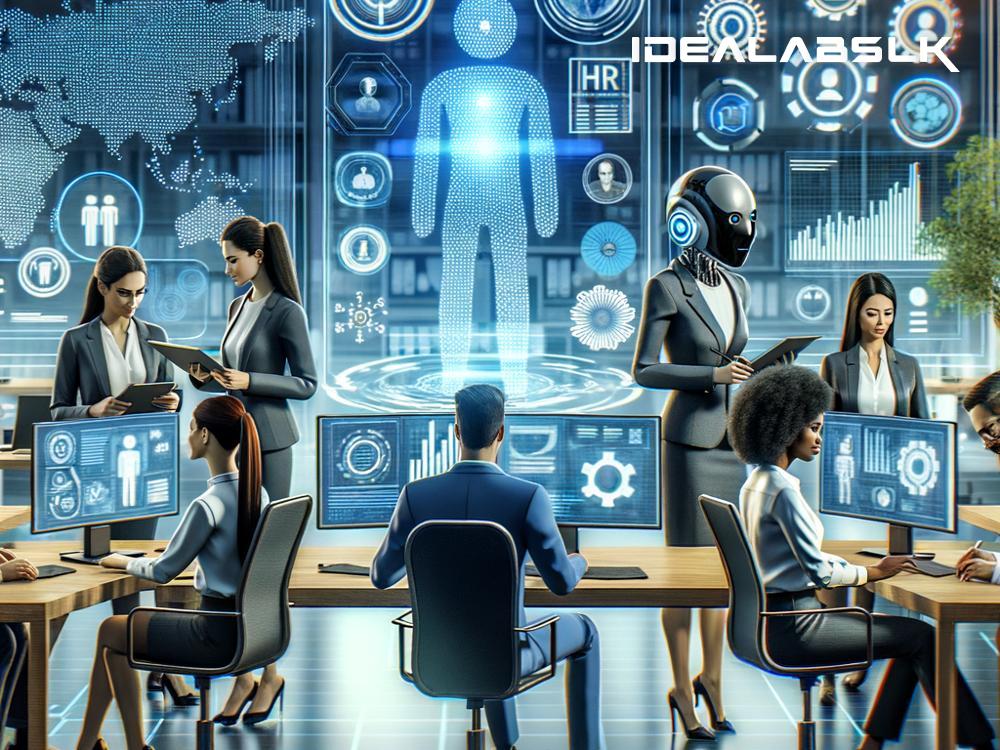Embracing Tomorrow: The Future of AI in Data-Driven HR
Welcome to a sneak peek into the future of Human Resources (HR) – a future sculpted by the meticulous hands of Artificial Intelligence (AI). As we march into the digital era, AI emerges not just as a tool but as a visionary companion reshaping the landscape of HR. With data as its fuel, AI in HR is set to transform the traditional HR functions into a more efficient, unbiased, and data-driven domain. Let’s dive into how AI will redefine HR in the coming years.
AI: The New HR Assistant
Imagine an HR department that operates 24/7, addressing queries without fatigue, managing tasks with unparalleled efficiency, and making decisions backed by data rather than gut feelings. That's exactly what AI promises to bring to the table. AI can automate repetitive and time-consuming tasks such as scheduling interviews, sorting resumes, and answering FAQs, freeing up HR professionals to focus on more strategic roles.
Recruitment Revolution
Recruitment is the first step in the HR process where AI makes its mark. With AI-powered tools, HR can analyze thousands of resumes in seconds, picking out the best candidates based on skills, experience, and job requirements. This not only speeds up the recruitment process but also eliminates human biases that might creep in. Furthermore, AI-driven chatbots can engage potential candidates, answering their queries and keeping them informed, ensuring a better candidate experience.
Personalized Employee Experience
AI doesn't stop at recruitment; it ventures into enhancing the overall employee experience. Through the analysis of employee data, AI can provide personalized recommendations for career development, learning opportunities, and even suggest job roles that match an employee's skill set and career aspirations. This level of personalization fosters a more engaged and satisfied workforce.
Data-Driven Decisions
The power of AI in HR lies in its ability to churn through vast amounts of data and derive actionable insights. From predicting employee turnover to measuring engagement levels, AI can provide HR professionals with the data they need to make informed decisions. Gone are the days of guesswork; in the future, HR decisions will be guided by data-driven insights courtesy of AI.
Enhancing Diversity and Eliminating Bias
One of the most significant contributions of AI in HR is its potential to enhance workplace diversity and reduce bias. AI algorithms, when designed correctly, don't care about gender, race, or age. They focus solely on skills, qualifications, and performance. By relying on AI for the initial screening process, organizations can ensure a more diverse and inclusive workforce.
Continuous Learning and Development
The future HR landscape envisions an environment of continuous learning, and here again, AI steps in. With AI, organizations can create personalized learning paths for employees, recommend courses, and even predict future skills requirements. This not only helps in closing the skills gap but also empowers employees to take charge of their growth and development.
Predictive Analytics in Employee Well-being
AI’s capability extends into the realm of predictive analytics, allowing HR to anticipate issues related to employee well-being before they escalate. Whether it's identifying signs of burnout or improving work-life balance, AI can analyze patterns and provide recommendations to prevent negative outcomes, ensuring a healthier and more productive workforce.
Challenges and Ethical Considerations
While the future seems bright, it does come with its set of challenges, especially around ethics and privacy. As we leverage AI in HR, questions about data privacy, consent, and the ethical use of AI tools become paramount. Organizations will need to tread carefully, ensuring transparency and ethical use of data while respecting employee privacy.
Final Thoughts
The journey of AI in the realm of HR is just beginning. As technology evolves, so will its applications in making HR more efficient, unbiased, and data-driven. However, the successful integration of AI in HR will require a delicate balance between leveraging technology and maintaining the human touch that lies at the heart of HR.
Change is not always easy, but with careful planning, continuous learning, and ethical considerations, the future of AI in data-driven HR looks promising. It’s an adventure into uncharted territory, bolstering the capabilities of HR professionals and enhancing the employee experience in unprecedented ways. Let's welcome this new era of AI in HR with open arms, prepared to navigate its challenges and reap its benefits.

